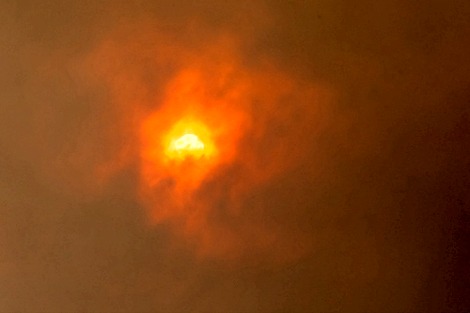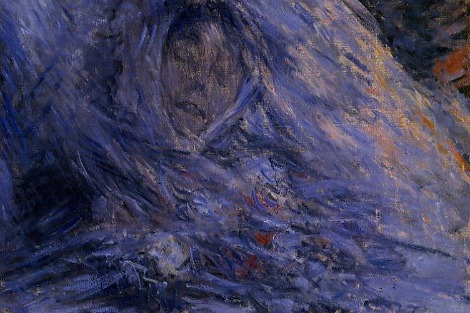Keywords: World Political Authority
There are more than 200 results, only the first 200 are displayed here.
-

RELIGION
- Frank Brennan
- 08 November 2013
1 Comment
'Many Catholics wonder how we can maintain our Christian faith at this time in the wake of the sexual abuse crisis and the many judgmental utterances about sexuality and reproduction. The Church that has spoken longest and loudest about sex in all its modalities seems to be one of the social institutions most needing to get its own house in order.' Frank Brennan's address to the Yarra Institute for Religion and Social Policy, 8 November 2013.
READ MORE
-

ENVIRONMENT
- Neil Ormerod
- 04 November 2013
47 Comments
With the publication of the latest report from the Intergovernmental Panel on Climate Change (IPCC), the Los Angeles Times made the bold decision to no longer publish letters from climate change denialists saying climate change is a matter of fact, not opinion. While this might seem like a small victory, the more substantial issue on the horizon is the global campaign for divestment in the fossil fuel industry. As it gains momentum and fossil fuel companies will be forced to reassess the value of their assets.
READ MORE 
-

RELIGION
- Frank Brennan
- 24 October 2013
'Here is a pope who is not just about creating wiggle room or watering down the teachings of the Church. No, he wants to admit honestly to the world that we hold in tension definitive teachings and pastoral yearnings — held together coherently only by mercy and forgiveness.' Frank Brennan's Wallis Lecture presented in Hobart on 24 October 2013 and Launceston on 25 October 2013.
READ MORE
-

RELIGION
- Frank Brennan
- 10 October 2013
4 Comments
'When confronted with moral evil in public policy, church personnel have a choice: to be prophetic sticking to the moral absolutes, or to be practical engaging in the compromises needed to temper the evil. At the moment, the only political parties not wanting to embrace a short term shock and awe approach are the Greens, the DLP and the Palmer United Party. And neither Christine Milne, John Madigan nor Clive Palmer will ever be prime minister.' Workshop paper from Catholic Social Services Victoria's Listening, Learning and Leading conference, October 2013.
READ MORE
-

RELIGION
- Frank Brennan
- 03 October 2013
18 Comments
'What a pope; what a man! ... The credibility of the Catholic Church has been enhanced with this new pope. We see in him many of the finest aspects of the presently battered and ageing Church.' Frank Brennan's presentation for Spirituality in the Pub, Pumphouse Hotel, Fitzroy, Vic. on 2 October 2013.
READ MORE
-

EDUCATION
- Frank Brennan
- 30 September 2013
Full text from Frank Brennan's lecture 'Law teachers as gatekeepers of law, public morality and human rights: Equipping our students for moral argument in a pluralistic legal environment' at the Australian Law Teachers Association Annual Conference 2013.
READ MORE
-

RELIGION
- Geraldine Doogue
- 24 September 2013
35 Comments
I wish he would invite me to be his temporary consultant, to offer him advice for his next 500 days. I'd begin by proposing a substantial Vatican-led inquiry, into why the Church has been so troubled by sexual abuse across various countries. Then I would point to the experiences of several large secular institutions, including the New York Times and US Army, that have rebuilt after crises.
READ MORE 
-

AUSTRALIA
- Frank Brennan
- 07 September 2013
12 Comments
How clever of you to choose the day of the federal election for me to offer these reflections. I come amongst you, not as a publisher or journalist but as an advocate in the public square animated by my own religious tradition as a Jesuit and Catholic priest engaged on human rights issues in a robustly pluralistic democratic society.
READ MORE
-

RELIGION
- Frank Brennan
- 04 September 2013
2 Comments
'The Towards Healing protocol is not a substitute for criminal prosecution of sex abusers. Nor is it a cheap alternative to civil liability for damages. It is a procedure available by choice to victims in addition to criminal prosecution of perpetrators or pursuit of civil damages for negligence by church authorities.' Full text from Frank Brennan's address to the Canon Law Society of Australia and New Zealand 47th Annual Conference, 4 September 2013 at Hotel Grand Chancellor Adelaide on Hindley.
READ MORE
-

AUSTRALIA
- Frank Brennan
- 13 August 2013
1 Comment
'Like many Australians, I had hoped that the dastardly plan announced on 19 July would stop the boats in the short term, as a stop-gap measure. It is dismaying to learn that appropriate consultations had not occurred with Indonesia with the result that the very people who were to receive the shock and awe message are yet to receive it. There’s only one thing worse than shock and awe; that’s shock and awe that doesn’t work because you haven’t done your homework.' 43rd Barry Marshall Memorial Lecture, Trinity College Theological School, 14 August 2013.
READ MORE
-

INTERNATIONAL
- Bill Calcutt
- 09 August 2013
1 Comment
Since the turn of the millennium several major technology-enabled developments have significantly altered the balance between national security and civil liberties. In Australia, the hyper-politicisation of national security finds voice in the discourse on the issue of border security, turning a complex humanitarian and policing challenge (asylum seekers arriving by sea) into an enormously controversial and expensive imbroglio.
READ MORE 
-

ARTS AND CULTURE
- Benedict Coleridge
- 09 August 2013
7 Comments
Monet, in a period of deep grief and loss, made what was in his career a rare decision: to paint other people. The artist forgot himself in contemplating the faces of his wife and his son, in depicting the faces of death and of incomprehension. We need icons like this — icons of incomprehension, reminders of the fragile self that, behind its virtual armour, is beset by doubt and demons.
READ MORE 